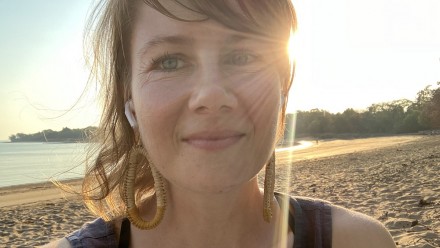ANU to lead a new era of personalised medicine
ANU will strengthen its role as a leading centre for personalised medicine following the announcement of $7.3 million in funding from the ACT Government to set up a new centre, Canberra Clinical Genomics.
Canberra Clinical Genomics will be a partnership between ANU and ACT Health and will work to cure patients with complex diseases by sequencing their genome and finding treatments that are personalised to their condition.
The Director of the Centre, Professor Matthew Cook, from the ANU Medical School and The John Curtin School of Medical Research, said the new centre would make a real difference to patient lives.
"This enables doctors and researchers to collaborate to implement what is truly 21st Century medicine," Professor Cook said.
"The clinical centre will build on the research and discovery pipeline established by the Centre for Personal Immunology. It will provide a pathway for true translation of discoveries to make a meaningful difference to the management of patients."
Co-director of the Centre for Personalised Immunology, Professor Carola Vinuesa, said the establishment of the Centre was the culmination of more than 15 years of research.
"We are bringing the era of precision medicine for the first time to patients in the ACT," Professor Vinuesa said.
"Patients will be diagnosed according to their genetic makeup and we will tailor a therapy to the patient's individual genetic defect."
For some patients, pinpointing the exact cause of disease could lead to easy resolution with existing therapies. More complex cases will be fed back to researchers in the Centre for Personalised Immunology, established at ANU in 2014 and funded by the NHMRC, for more detailed investigation.
ANU Vice-Chancellor Professor Brian Schmidt AC said the new Centre recognised the University's leadership in this field, and he thanked the ACT Government for its support.
"This is the future of medicine, that will bring truly innovative medical treatments to the community and make a real difference to patients," Professor Schmidt said.














